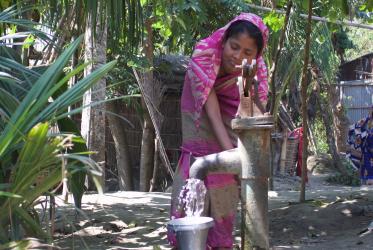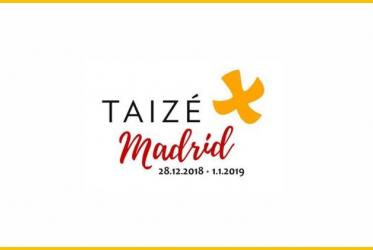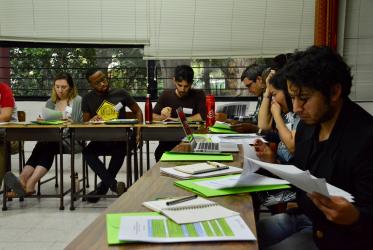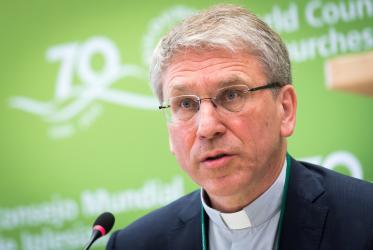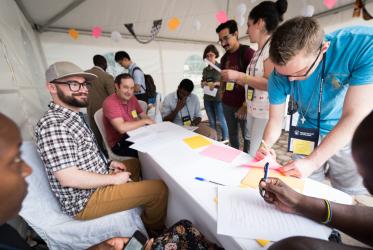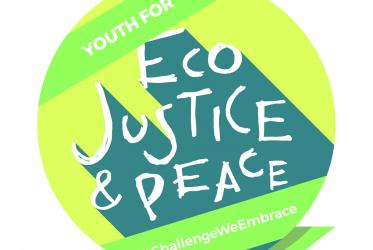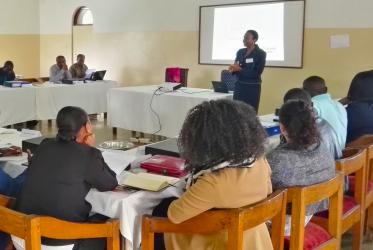Displaying 41 - 60 of 108
WCC sends greetings as Taize youth reflect on hospitality
27 December 2018
WCC Eco-School encourages youth to become eco-ambassadors
08 November 2018
WCC invites all to join World Week of Peace in Palestine and Israel
17 September 2018
“Pilgrim Team” to visit Democratic Republic of Congo
18 August 2018
Diakonia: “a tool to reach abundance of life”
24 July 2018
Determined to make a difference
18 April 2018
‘Sokoni’ transforms marketplace into mission
13 March 2018
GETI students plant trees, in service for greener future
07 March 2018
Konrad Raiser shares ecumenical journey of transformation
06 February 2018
GEM School: integrating theology and economics
05 September 2017
African youth takes stand at first ever WCC Eco-School
03 August 2017
A safe space for sinners to change and for pain to be shared
03 August 2017
